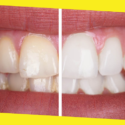Advantages & Disadvantages of Eating Pizza
This post was last updated on January 22nd, 2024

Over the years junk foods have replaced healthy snacking and pastas, pizzas and burgers have become extremely popular, especially with kids.
The sedentary lifestyle and the busy work schedules have compelled people to resort to junk foods as they are delicious and make the stomach feel full for longer duration. But the recent shoot in the number of people suffering from lifestyle diseases suggest that there has been a remarkable boost in the consumption of junk foods and this is why, this topic will cover the recent findings about advantages and disadvantages of eating pizza.
Various medical studies have found that pizza comprises of huge amounts of fats, carbs and calories that can have adverse impact on the metabolism rate in the long run. Consumption of pizza, frequently can double the risk of obesity, cardiovascular diseases, diabetes among other lifestyle disorders. Treating yourself once in a while with such calorie rich foods cannot be of much harm. Indulging anything in excess or getting addicted can severely affect the health.
While scientists have been debating about pizza being a healthy or unhealthy food, here are few advantages and disadvantages of pizza that can guide your pizza consumption patterns:
Contents
ToggleDisadvantages Of Eating Pizza
1. Weight Gain
One of the major disadvantages of eating pizza, which is known to most people, is weight gain. Junk foods like pizza have been a significant cause of weight gain in all age groups. It is estimated that having around 3500 calories in excess can cause increase in weight by 1 pound. Therefore, in a week, if a person consumes 500 calories in addition to the daily recommended calories per day, then by a week’s time, he / she will weigh 1 pound more. Therefore, even having mini pizzas on regular basis cannot save you from putting on extra pounds.
2. Increased Risk of Stroke
Sodium is essential for maintaining normal fluid balance in the body but it is advised not to consume more than 1500 mgs of sodium per day. This is because excess sodium can lead to increase in blood pressure, which in turn, improves the risk of stroke. Junk foods, specifically pizza, have been found to have sodium in abundance and studies suggest that consumption of 500 mgs of sodium above the recommended dosage can increase the risk of stroke by over 17 percent. Therefore, people addicted to having pizzas more than twice a week or have it in large quantities are at a greater risk of suffering heart ailments before reaching 40s.
3. Gastrointestinal Disorders
Made from refined flour, the pizzas are bound to have massive amounts of carbohydrates, which the stomach may find difficult to digest. Eliminating the goodness of bran and wheat germ, the refined flour lacks fibre and essential vitamins that aids in great digestion. Thus having pizza frequently can cause constipation and in long run, may cause serious gastrointestinal disorders.
4. Skin Problems
Junk foods like pizzas have too much fat, sugar from carbs and have loads of cheese, which can have adverse affect on the hormonal activities, especially in teenagers. Regular consumption of such oily food can increase the production of sebaceous glands that secrete sebum oils. This can result in frequent breakouts and even acne. One must avoid having pizzas on regular basis to keep the skin in great health.
But according to a study conducted in the hometown of pizza, Italy, it has been found that pizza consumption can reduce the risk of a second heart attack. Researchers conducting the study revealed that 14 ounces intake of pizza each week reduced the risk of heart attack by over 50 percent. However, there’s a humongous difference between the pizza available in major parts of the world and that in Italy. It has been studied that the pizzas made in Italy have thinner crust and are sparsely sprinkled with mozzarella cheese in comparison to the ones made in US, where the crust is thick and are heavily clad in cheese. While an entire Italian pizza ranges about 800 calories, the American pizzas have around double the amount of calories.
Instead of opting for cheesy pizzas having thicker crust, you can anytime have one or two slices of the Italian style pizza, which is way healthier and can actually add value to your wellness.
Advantages Of Eating Pizza
1. Antioxidant Properties
One of the most important advantages of eating pizza is its antioxidant content. The ingredient in the toppings that makes this junk food tangy and juicy enough is the tomato sauce. Tomatoes contain Lycopene and studies suggest that the tomatoes processed into sauce comprise more of them. Lycopene is a popular antioxidant, which helps in eliminating the free radical effect, thereby reducing the risk of various kinds of cancer. Medical researchers have revealed that people who consume moderate amounts of pizza every week have lesser chances of developing lung, prostate, stomach and mouth cancer.
2. Wonders of Mozzarella Cheese
Dairy products are rich in nutrients and pizzas with mildly sprinkled Mozzarella cheese can give your body a good dose of calcium, protein, essential fats, sodium, etc. Instead of having extra cheesy pizzas that get packed with more of fats and cholesterol, opt for less cheesy pizzas and limit your consumption to once a week for deriving optimum benefit from a popular junk food.
3. Goodness of Olive Oil
Health conscious people swear by olive oil for maintaining their cholesterol levels and to get their body more of antioxidants. Olive oil is known to have lesser calories from saturated fats and they give a boost to the metabolism. Olive oil comprises of lower quantities of LDL or the bad cholesterol and has greater amounts of HDL or the good cholesterol, thus keeping your heart protected from various heart ailments. Olive oil is largely used in Italian dishes and this is why pizza is also made from olive oil. Moderate portions of pizza on weekly basis can prove a nutritious boon for your health.
4. Nutrition From Colourful Veggies
Recent studies suggest that increasing number of health conscious people are opting for healthy pizzas that comprise more of tomato sauce, less of Mozzarella cheese and top it with loads of colourful veggies. These fresh and large quantities of colourful veggies are highly nutritious and filled with antioxidants to further add to your great health foundation. Moreover, the inclusion of garlic that contains vitamin C, selenium, manganese, etc. and nutritious herbs like oregano make pizza a great health food. Freshly baked pizzas with thin whole wheat crust have lately become quite popular among dieters.
Recommended: 8 Foods That Significantly Damage Our Liver
Recommended For You
Fascinating Things You Need to Know About General and Cosmetic Dentistry
Snehashree Bhat
A young writer who loves to pen words from creative perspective. Passionate internet surfer, a versatile homemaker and a person who finds pleasure in adopting healthier and positive changes in her persona. An enthusiastic feminist who wishes to make serious changes in the stereotypical thought process of the society via the voice of her words.




